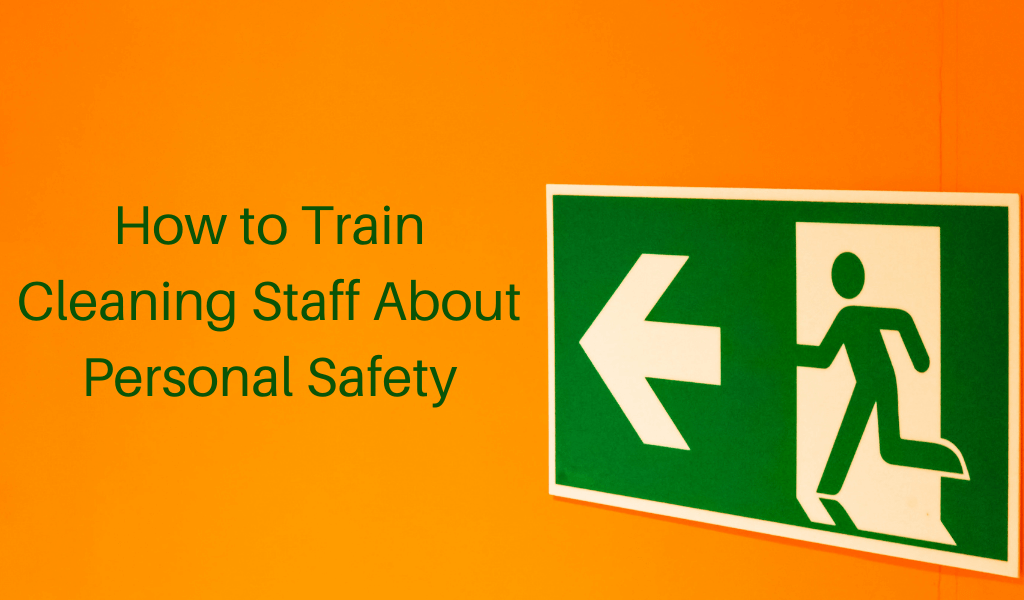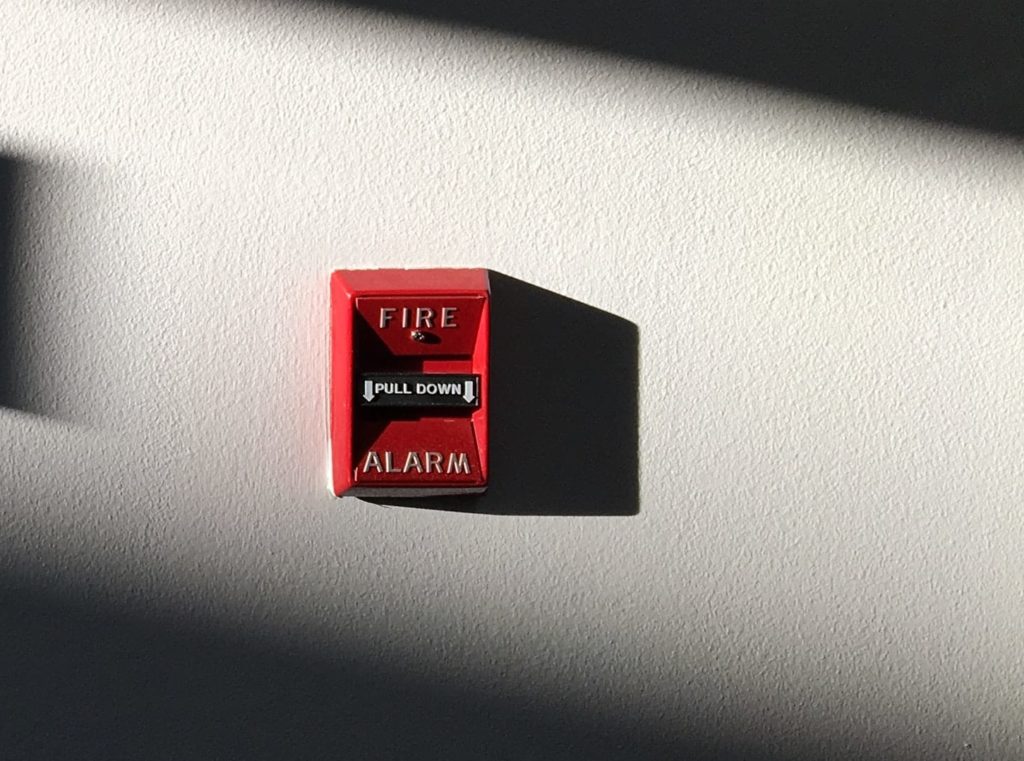Find out how to train cleaning staff around personal safety issues, and you could help them prevent a disaster.
There’s a lot out there about how to train cleaning staff when it comes to the techniques of the job. We even get into safety regarding the cleaning products we use, how to avoid trip and fall incidents, and how to stay safe when cleaning potentially contaminated environments.
These are all important, but there’s one essential part that we need to address: personal safety. The issue of personal safety is not fun to talk about. However, it could keep your team from severe injury or worse.
Janitorial teams regularly work after normal business hours, early in the morning, or in quieter parts of facilities. Empty parking lots are the norm. Dumpsters are often hidden in alleyways. Cleaning supplies are frequently stored in out-of-the-way places. And without replaying any of the numerous news stories, we all know that personal safety skills can come in handy anywhere at any time.
That’s why it’s so important to think about how to train cleaning staff in what they should do in an emergency or keep themselves safe on a typical day at work.
Enjoy a free discovery call with Janitorial Manager and learn why we’re the best choice for janitorial management software designed to help you get ahead!
Learn how to train cleaning staff to stay safe no matter what
As you think about how to train cleaning staff on personal safety, bear in mind the specific times and locations of your work. Some of these tips may be more or less important, depending on the circumstances. The first two tips, however, will always apply.
Be aware of your surroundings. Whether taking the garbage out to a dark alley late at night or working during the day in a school, always be mindful of what is happening around you.
Trust your instincts. This is one of the top safety tips from professional security specialists, university police departments, and even the United States Forest Service. When it comes to ideas about how to train cleaning staff to stay safe, this may be the single most important tip you can offer.
Work in pairs or groups. If possible, try to work in teams or groups, especially if it’s late or in a secluded location. That doesn’t mean you have to have two people together cleaning each room, but at least have employees keep close enough to hear someone if they need help.
Turn on lights. Anytime your team needs to work in an area, be sure they turn on the lights. This will, of course, make it easier to clean, but it also helps with personal safety. This is especially true if they are leaving the building to dispose of garbage.
Leave in groups. When leaving a facility, go as a group. If traveling separately, ensure everyone is securely in their vehicle before leaving.
Park in well-lit areas. As much as possible, encourage your team to park near lighting or in populated areas.
Lock your door first. Whether in a group or individually, always lock your car as soon as you get in. Then start your vehicle and lastly, buckle up and be on your way.
What your cleaning staff can do if they are in danger
Remember that things can be replaced. In considering how to train cleaning staff if they get in a situation where someone is trying to rob them, remind them that any item, whether it’s something personal or company supplies, is replaceable. If someone threatens them and wants whatever they have, throw it and run in the opposite direction.
Make noise. Someone threatening or trying to rob or hurt you is not going to want to draw attention. Make noise, call for help, or use a personal safety alarm. Don’t be afraid to pull fire alarms or trigger door alarms if necessary. (This is situational, so use your best judgment. It may sometimes be better to keep quiet and cooperate, especially if you are not in physical danger.)
What to do in active shooter situations
No one ever wants to deal with this, but just like stop, drop, and roll in fire safety, if you’re considering how to train cleaning staff to stay safe, this is potentially life-saving information. The information here comes from the U.S Department of Homeland Security and Ready.gov.
Keep the mantra, Run, Hide, Fight in mind. Your first goal is to get out and run. If that’s not possible or doesn’t seem safe, your next option is to hide. The DHS says that “as a last resort, and only when your life is in imminent danger, attempt to disrupt or incapacitate the active shooter.”
Let’s break these down into more manageable steps:
Run
- Always be aware of at least two exits in any facility.
- If it is safe to do so, evacuate the area.
- Leave any belongings. Remember, things can be replaced.
- Help other people escape, if possible, but do not stop to attend to wounded people.
- Call 911.
Hide
- If you are unable to evacuate, hide in the best place you can find.
- An office or room where you can secure the door is ideal.
- If you can’t lock the door, place a chair under the doorknob or put as much heavy furniture as possible in front of it.
- Turn off lights.
- Silence your phone and any other noise, including radios.
- Remain quiet so as not to give away your location.
- Place as much stuff between you and the door or windows as possible. Hide behind desks, furniture, cabinets, or in a closet.
- Call 911, but only talk if you are sure you are safe. Some systems can pinpoint your location and will send first responders even if you don’t speak with them.
- Do NOT open the door until you are absolutely sure the situation is under control.
Fight
Again, this is the last resort, but it could save your life. Here’s what Ready.gov and DHS suggest:
- Attempt to disrupt or disable the attacker.
- Be as aggressive as possible and commit to your actions.
- Throw or use improvised weapons, such as books, chairs, or lamps.
When law enforcement arrives, keep your hands empty and visible and follow instructions. Again, hopefully this isn’t anything you or your team will ever need to put into practice. But it’s impossible to address personal safety without going over these tips.
Like any other part of janitorial training, however, knowledge is one of your strongest assets in staying safe.
Get a free discovery call with Janitorial Manager to see how we can help with safety procedures and so much more!


